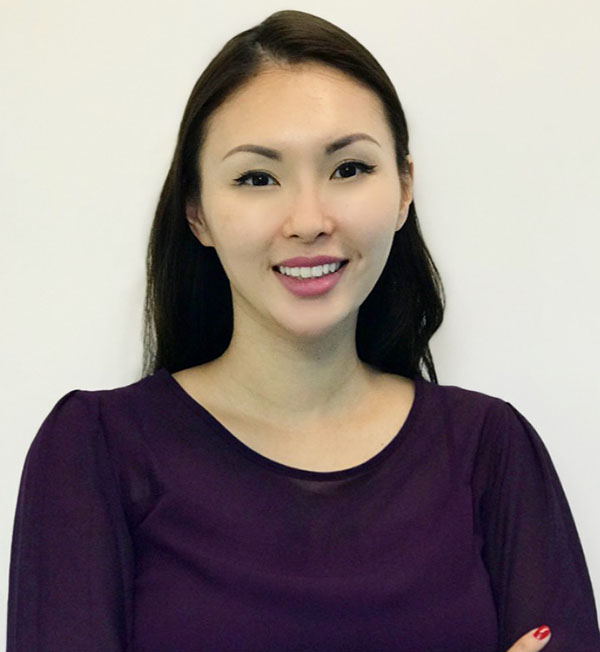HOW CAN BUSINESSES ENGAGE THE ADULT “THIRD CULTURE KID”?

By the age of 12 I had attended seven schools including an international school in Bangkok and a public school in Sydney. I was born in Taiwan, raised in a number of countries across APAC and currently live in Singapore. I look Chinese but I speak with an Australian twang. I say twang because it is mixed with some strange American-like accent that is sported by most international school children – yes, even those who went to a British international school like me. I am a child of expatriate parents, and I am what you would refer to as a Third Culture Kid (TCK).
Many of you may be familiar with the term TCK, but if you aren’t, the term TCK was pioneered by author Reken and sociologist Pollock. They define TCKs as “persons raised in a culture other than their parents’ or the culture of the country named on their passport (where they are legally considered native) for a significant part of their early development years.” This includes children of immigrants or those who were sent overseas to boarding school at a young age. However for the purposes of this blog, I’d like to focus on a subcategory – children of expatriate parents.
About 30 years ago we began to see a surge in the number of expat packages being offered to employees by globally expanding businesses. And these employees, realising the many benefits that an international move would have on their career, ended up relocating to countries they would not have otherwise considered. And now, decades later, the offspring of these expats, AKA the first generation of TCKs, are growing up and entering the workforce.
Our unique identity as cultural chameleons enables us to quickly adapt to different people and environments, and provide valuable insights when it comes to bridging culture gaps and appealing to local clients. However, in order to engage and effectively retain adult TCKs in your organisation, it’s important to bear in mind that their motivations and beliefs might differ significantly to the other people in your team, even if they look like you or sound like them.
In this article I want to share some tips that will improve the way you attract, engage and retain adult TCKs.
1. Focus on advancement, not stability
The life of a TCK is defined by transience, therefore they probably won’t have quite so many qualms about packing up their lives and moving somewhere new, given the right opportunity. The consideration of ‘leaving people behind’ is less scary. They know that they can flourish and build new relationships – because they’ve done it all before. Therefore, when you’re trying to appeal to a TCK, tell them about how their role can evolve and be fast-tracked, regardless of where in the world it may take them. I would also advise sharing real life anecdotes of people within the business who have progressed their career and moved internationally.
Once the TCK is in the role, make sure you are receptive to any discussions that they initiate on progressing their own careers, even if this is after a short space of time within the business. Of course, you should treat them with the same meritocratic and even-handed approach as you do the rest of your team, but don’t be surprised if your TCK employees expect to advance quicker than most. As I said, all through their lives they have never stopped moving forward, and you need to be able to manage that expectation.
2. Find a way to connect them
Another by-product of constant and frequent relocation is emotional independence. The greatest challenge faced by most TCKs is the lack of belonging. While the diversity of their life allows them to be cultural chameleons – adjusting their accents and behaviours depending on the social setting – they are well aware that they are exaggerating certain traits about themselves to make those around them feel comfortable. They may struggle with the painful reality of being rootless and having to always adapt.
TCKs tend to click more with people who can appreciate this, and are both culturally sensitive and curious. If possible, create an environment where they can bond with those with similar backgrounds and speak freely about their experiences. You should also pay an active interest in their background, both in the interview room, and once they join the company.
3. Be culturally sensitive
It’s easy to fall into the trap of making sweeping statements about a group of people, especially when you feel like you are surrounded by those who get you. In the past, people have forgotten that I have spent a significant portion of my life in Taiwan, Thailand, Australia and Singapore, and will take issue with generalisations about Asians or Australians.
Be mindful of the fact that TCKs have grown up across and in between cultures and their identity has been shaped as a result of continuous adaptation to new environments. While they do not fall neatly into one culture, it’s important not to forget that they identify with multiple cultures. Therefore be culturally sensitive, and instead of making any assumptions, be more curious and open minded, asking the TCK about their experiences within this culture.
TCKs can be your best eyes and ears, because they have truly obtained hands-on experience across multiple cultures. Encourage TCKs to share their cultural intelligence and ask for their opinion on matters where you think their point of view could be useful. By doing so, you recognise and demonstrate the value of their position as global nomads.
So those are my tips for employers. TCK is a broad term and there are invariably going to be differences depending on what category of TCK you are working with. However a great book that I felt defined TCKs well is Third Culture Kids: Growing up among Worlds by David C. Pollock and Ruth E. Van Reken.
You can find more talent attraction content below:
JUDY LIU / Training Manager, Asia

Judy has been with Hays for over five years and is currently the Training Manager, Asia. Having completed a double degree in Sydney in Law and Psychology, she commenced her career in Australia as a solicitor before relocating to Singapore in 2013. She is a firm believer of blended learning – the notion that learning should not be solely focused on classroom delivery, but rather a strategic combination of online, self-directed, practical application and coaching. Ambition to her is defined by the courage to innovate in the absence of problems and the bravery to start again from scratch in the pursuit of new skills. Hence, she and her team work alongside the business to continually enhance training for all levels of staff, analysing its effectiveness and evolving in parallel with our ever-changing world.

The job interview
The word you are saying too much in job interviews
Discussing your salary expectations
Answering competency-based interview questions
Answering behavioural job interview questions
How to answer, “Why should we hire you?”
Questions to ask following the pandemic outbreak”
How to deal with a counter offer



